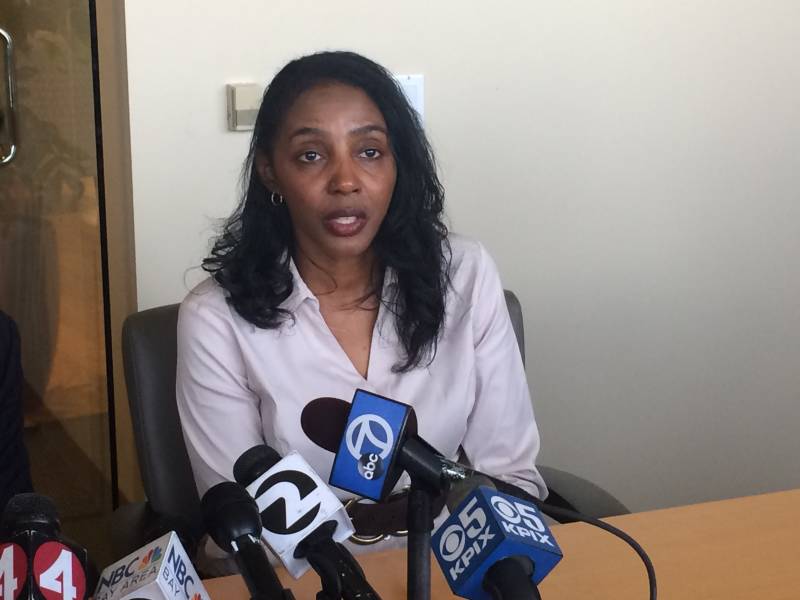The worker told investigators he simply wanted the behavior to stop. Mulzet’s punishment was a 5 percent pay cut over two months in lieu of suspension.
Others who harassed students, such as an adjunct professor, a cafeteria manager and a custodian, were fired or resigned.
The university did not initially move to fire any of the higher-level faculty or administrators, such as Choudry.
The Case of Tyann Sorrell
Sorrell, a married mother of five, has been on leave from her job since March 2015 after complaining about Choudry's inappropriate behavior. Investigators found Sorrell credible, stating that it was more likely than not that Choudry hugged, kissed and harassed her over eight months, once putting her hands on his waist and rubbing it. Choudry admitted to the latter, but insisted there was no sexual intent.
Even so, Choudry was initially given a 10 percent pay cut, ordered to write Sorrell an apology and directed to an in-person sexual harassment training. Sorrell decided to sue, and Choudry has since resigned from his post, though he is still receiving pay as tenured faculty. Under public pressure, UC President Janet Napolitano barred him from campus and ordered an Academic Senate review, which could end in his tenure being revoked.
Sorrell accuses Cal of suppressing reports like hers, and insists that survivors should help lead the university's reform efforts. She says the campus community should not have to depend on public records requests in sexual harassment cases and should be immediately notified after misconduct is confirmed.
"That's the minimal consideration and respect that you can show people who are attending that university, who are working at that university and who are donating to that university. It's our right," Sorrell says.
Some caution that this sort of move would amount to a "professional death penalty," no matter the severity of the offense.
While UC Berkeley spokesman Dan Mogulof says Chancellor Nicholas Dirks' newly formed sexual misconduct committee will consider including survivors, as well as issues of transparency, he denies the school has withheld information.
"The records are out, we have responded to requests to see them and always will," Mogulof says. "These are societal questions -- whether entities, companies, nonprofits, should begin releasing the names of anyone and everyone who violated sexual harassment policies. It's an important discussion."
Mogulof says the committee will begin reviewing the university's policies next week.
